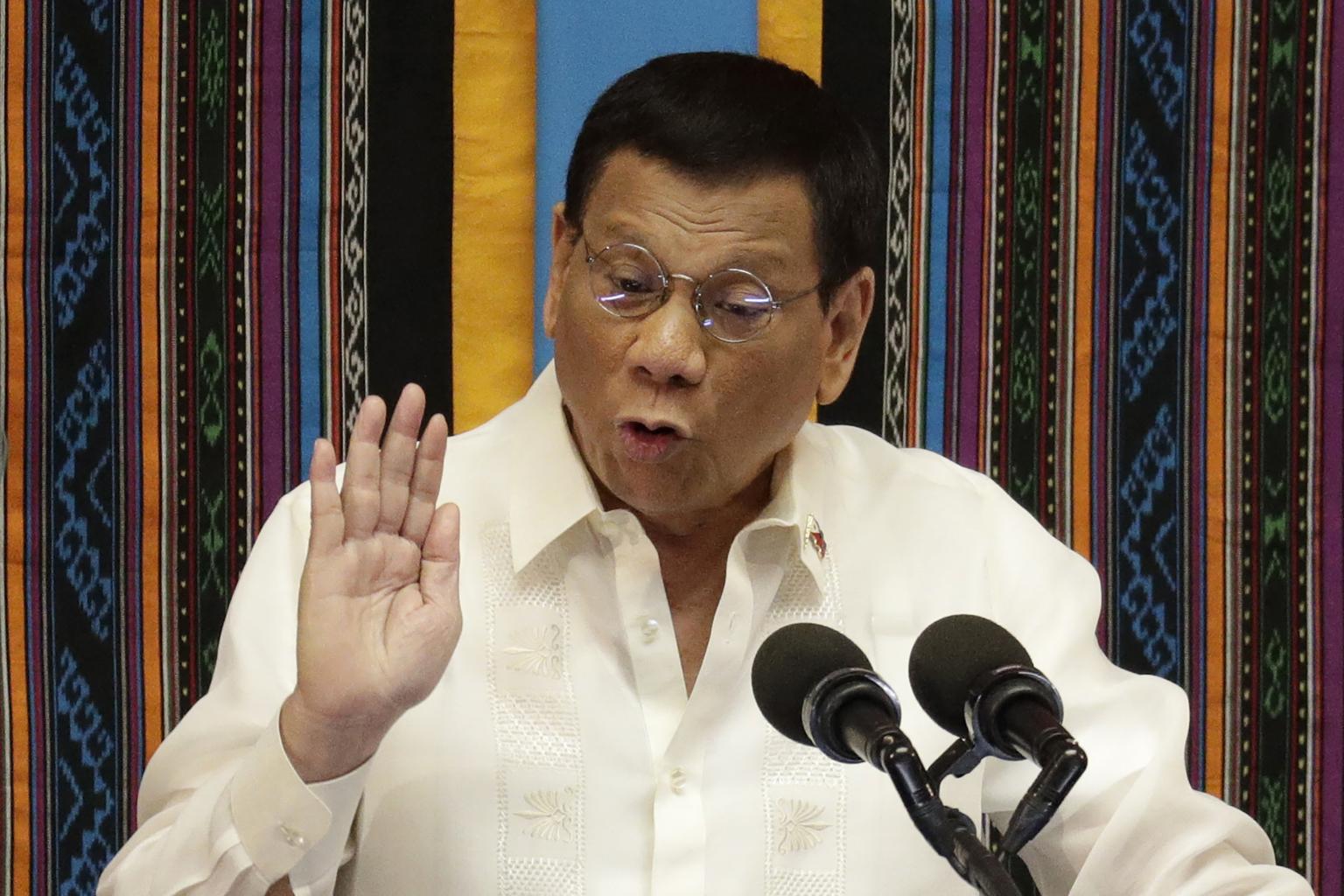Duterte to lift martial law in southern Philippines, claiming rout of Muslim militants
Sign up now: Get insights on Asia's fast-moving developments

In a photo taken on July 22, Philippine President Rodrigo Duterte speaks during his 4th State of the Nation Address at the 18th Congress at the House of Representatives in Quezon, the Philippines.
PHOTO: AP
MANILA - President Rodrigo Duterte is lifting martial law in the war-torn southern island of Mindanao, nearly three years after declaring it following a bloody, five-month siege by Muslim militants on its third largest city, Marawi.
Mr Duterte's spokesman Salvador Panelo told reporters on Tuesday (Dec 10) the government "will not extend martial law in Mindanao upon its expiration on Dec 31, 2019".
Mr Duterte placed Mindanao under martial rule after about a thousand Muslim militants, many from Indonesia and Malaysia, stormed Marawi on May 23, 2017, and held on to parts of it for five months in what became the Philippines' biggest security crisis in years.
By the time the military declared victory on Oct 23, more than 1,000 militants, government troops and civilians were dead, half of Marawi had been pulverised into rubble and dust, and about 400,000 people living in and near the city were forced to flee their homes.
Mr Panelo said Mr Duterte agreed with his top security advisers that the militants no longer posed a threat after their most senior leaders were either killed or arrested.
Estimates by security officials of just how many Islamic State in Iraq and Syria (Isis) fighters from abroad are still in the Philippines have been nebulous.
At the height of the Marawi battle, hundreds of foreign extremists were said to have fought alongside their local compatriots.
After the bloody campaign, reports emerged that the number of foreign fighters in the war-torn southern Philippines was down to 100.
In July, Defence Secretary Delfin Lorenzana said that only seven remained.
"The (government) is confident in the capability of our security forces in maintaining the peace and security of Mindanao without extending martial law," Mr Panelo said.
He added that "contrary to the suppositions of the vocal minority on the proclamation of martial law in Mindanao, this decision of the President shows how he responds to the situation on the ground".
Mr Lorenzana last week said he told Duterte there was no need to place Mindanao under martial rule.
Brigadier-General Edgard Arevalo said on Tuesday the military also informed Mr Duterte it could handle the situation in Mindanao without martial law.
"We have cited several reasons like the improved security climate in Mindanao, the continued decline of Daesh-inspired local terrorist groups, and to further promote an environment more conducive to economic activities," he said. Daesh is the Arabic acronym for Isis.
Mr Duterte had initially placed Mindanao under martial law for only 60 days but managed to convince Congress to extend it three times.
In his letter to Congress last year, he said extremists, under the sway of Isis continued to "defy the government by perpetrating hostile activities".
Over the past year, security forces have had to deal with a spate of suicide attacks that they said were prepped and carried out by militants from abroad.
In January, investigators said two Indonesians were involved in a suicide attack on a Roman Catholic cathedral in Sulu that killed 23 people and wounded at least 100.
Then, in June, a Filipino militant set off one of two bombs that exploded inside a temporary camp of a special army counter-terrorism unit in Indanan town, in Sulu province.
Three soldiers manning the camp's gate were killed, along with three civilians who were nearby.
A top United States counter-terrorism official said last month Isis militants who fought in Syria and Iraq, who have been defeated by US backed forces, were not flocking to Southeast Asia "in droves" even though there has been "a clear indication of an interest" among them to head to the region.
"We know that Isis core, the remnants of Isis in Syria, had been encouraging their fighters to leave and fight again, to take the fight to other regions," Mr Nathan Sales, who leads the US State Department's counter-terrorism bureau, told reporters in Manila.


